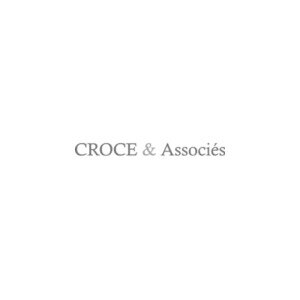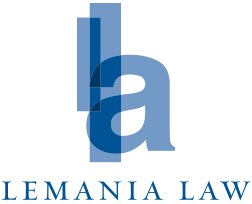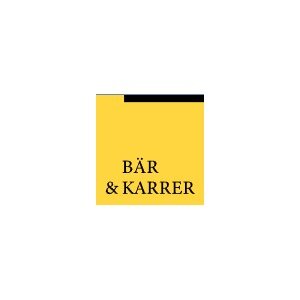Best Work Permit Lawyers in Geneva
Share your needs with us, get contacted by law firms.
Free. Takes 2 min.
List of the best lawyers in Geneva, Switzerland
About Work Permit Law in Geneva, Switzerland
Geneva, known for being an international hub, attracts many foreign nationals seeking employment. Switzerland, including the canton of Geneva, has specific regulations governing work permits issued to non-Swiss citizens. To work legally in Geneva, a foreign national usually needs a work permit, which is contingent on factors such as nationality, job role, and the economic interests of Switzerland. The process involves both cantonal and federal authorities, with permits generally categorized based on the duration and nature of employment.
Why You May Need a Lawyer
Obtaining a work permit in Geneva can be a complex process due to the stringent regulations and legal requirements. A lawyer can be instrumental in several situations, such as:
- Navigating the complexities of Swiss immigration law and understanding eligibility requirements.
- Handling denied work permit applications and lodging appeals.
- Ensuring compliance with employment regulations to avoid penalties for both employers and employees.
- Facilitating the transfer and extension of permits for professionals changing roles or employers.
- Advising on residency issues and family reunification processes that typically accompany work permits
Local Laws Overview
The legal framework regarding work permits in Geneva is deeply integrated with Swiss federal law, supplemented by cantonal regulations. Key considerations include:
- The type of work permit required, which can be short-term (L permit), long-term (B permit), or cross-border (G permit).
- The labor market test, prioritizing residents in Switzerland and EU/EFTA countries over third-country nationals.
- The quotas that limit the number of permits issued to non-EU/EFTA nationals.
- Employer obligations to demonstrate the need for a foreign worker with no suitable domestic candidates.
- Regulations around renewals, extensions, and changes in employment circumstances affecting permit status.
Frequently Asked Questions
What is the difference between L and B permits?
The L permit is a short-term residency permit valid for up to one year, used for temporary employment, while the B permit is longer-term, generally up to five years, for more permanent employment arrangements.
Can my work permit be extended?
Yes, work permits can often be extended, provided the employment conditions remain unchanged, and the quota permits it. However, extensions are not guaranteed and are subject to re-evaluation by authorities.
What happens if my application for a work permit is denied?
If your application is denied, you typically receive a written explanation. At this point, consulting with a lawyer who specializes in immigration law can be crucial to understand your rights and formulate an appeal if applicable.
Is it possible to change employers with a Swiss work permit?
Changing employers is possible, but it generally requires the approval of the immigration authorities. The new employer must prove that they cannot fill the position with a local candidate.
Can my family join me if I get a work permit in Geneva?
Family reunification is possible under certain conditions, especially for holders of B permits. Your family members may be eligible for permits that enable them to live and, in some cases, work in Switzerland.
How long does it take to process a work permit?
The processing time can vary but typically ranges from a few weeks to a few months, depending on the complexity of the application and the type of permit requested.
Are there quotas for the types of work permits?
Yes, Switzerland applies annual quotas to certain types of work permits, notably for non-EU/EFTA nationals. These quotas are subject to change and can affect the availability of permits.
Do I need a work permit if I am an EU/EFTA citizen?
EU/EFTA citizens have a right to live and work in Switzerland, but they must still register with the local authorities and obtain a residency permit specific to their circumstances.
What should employers do to hire a foreign national?
Employers must demonstrate that no suitable local candidates are available and comply with salary and employment conditions according to Swiss standards before they can hire a foreign national.
Can students work in Geneva with a study visa?
Yes, students can work up to 15 hours per week during the academic term and full-time during vacations, provided the employment is consistent with their studies and they've been studying in Switzerland for at least six months.
Additional Resources
For comprehensive information and resources, consider consulting the following:
- The State Secretariat for Migration (SEM) for federal guidelines and quotas.
- The Geneva Cantonal Office for Population and Migration (OCPM) for local specificities.
- Legal clinics and non-profit organizations that provide legal assistance or advice for immigrants.
- Switzerland Global Enterprise for foreign business establishments seeking to hire overseas talent.
Next Steps
To seek legal assistance regarding work permits in Geneva, start by consulting with a qualified immigration lawyer who understands both Swiss federal and Geneva cantonal laws. Many law firms offer initial consultations to assess your case. Gather all relevant documents and details about your employment situation before seeking legal advice to streamline the process effectively.
Consider reaching out to communities or forums focused on expatriates in Geneva for support and shared experiences, which can also provide insights and recommendations for legal professionals.
Lawzana helps you find the best lawyers and law firms in Geneva through a curated and pre-screened list of qualified legal professionals. Our platform offers rankings and detailed profiles of attorneys and law firms, allowing you to compare based on practice areas, including Work Permit, experience, and client feedback.
Each profile includes a description of the firm's areas of practice, client reviews, team members and partners, year of establishment, spoken languages, office locations, contact information, social media presence, and any published articles or resources. Most firms on our platform speak English and are experienced in both local and international legal matters.
Get a quote from top-rated law firms in Geneva, Switzerland — quickly, securely, and without unnecessary hassle.
Disclaimer:
The information provided on this page is for general informational purposes only and does not constitute legal advice. While we strive to ensure the accuracy and relevance of the content, legal information may change over time, and interpretations of the law can vary. You should always consult with a qualified legal professional for advice specific to your situation.
We disclaim all liability for actions taken or not taken based on the content of this page. If you believe any information is incorrect or outdated, please contact us, and we will review and update it where appropriate.














